Education & AI; Bildung to the Rescue?
Meet the speakers, alphabetically by first name — more coming soon
See the program and sign up here: https://www.globalbildung.net/gbd2023-september-21/

Alireza Dehbozorgi
Iran
Alireza Dehbozorgi is an accomplished linguist and pioneer in artificial intelligence for natural language processing. His research on computational and mathematical language formalisms has been seminal in teaching machines to process diverse languages. Currently a Neural Machine Translator at LingoAI, Alireza leverages his multilingual expertise to advance cross-lingual AI systems worldwide.
Tech Disruption Amid Tradition: The Middle East’s Balancing Act
While rapid growth in sectors like fintech, healthtech and edtech highlight the Middle East’s booming tech scene, indifference towards technology persists in some corners. However, government initiatives like Smart Dubai and investment in digital infrastructure aim to boost innovation and position major cities as global tech hubs. The future looks bright for Middle Eastern tech, though challenges remain in achieving uniform acceptance.
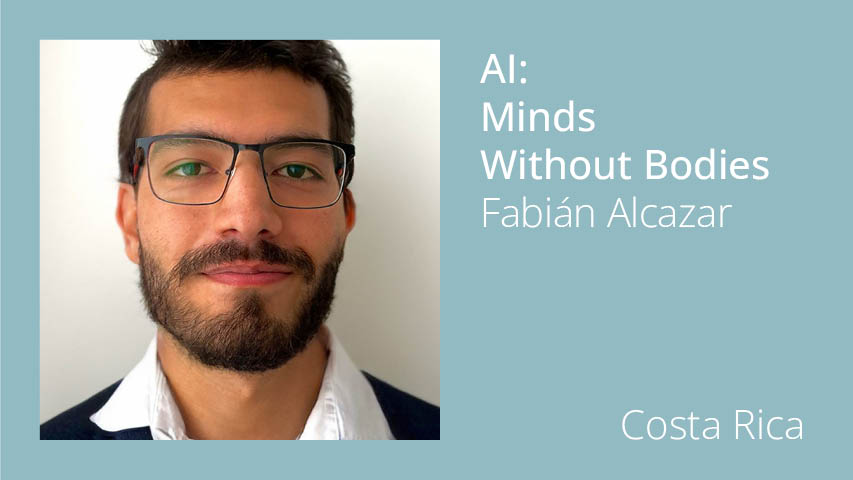
Fabián Alcázar
Costa Rica
Blending a philosophical foundation with enterprise experience in computational linguistics, Fabián Alcázar carves a unique niche at the intersection of technology and anthropology. As Global Ambassador for Singularity University, he is at the forefront of transformative conversations on computer-human interactions, the evolution of language, and digital cultures.
AI: Minds without Bodies
Recent AI advancements compel us to reexamine our traditional views on mind and conscience. Exploring the nexus between philosophy and computational science, we explore what it could mean to be a mind without a body.
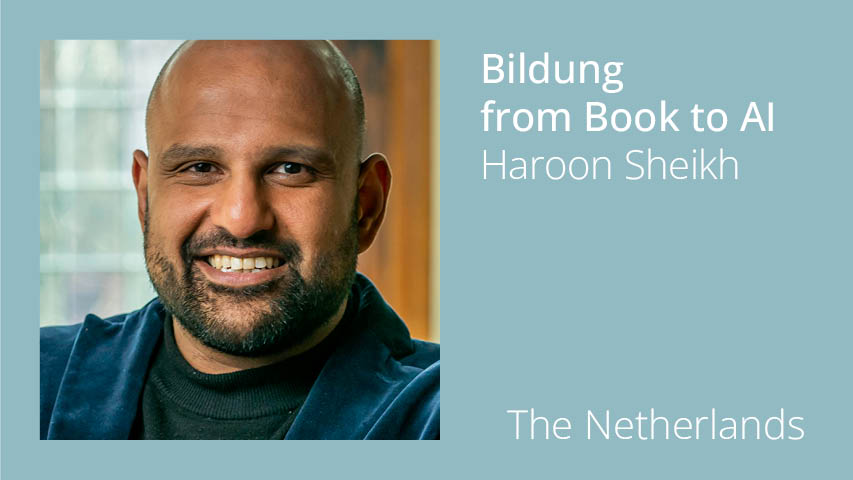
Haroon Sheikh
The Netherlands
Haroon Sheikh is a professor of philosophy at VU University and a senior researcher at the Dutch Scientific Council for Government Policy (WRR) where he wrote an advisory report for the government on artificial intelligence. He has written extensively on new technologies and their implications for the human condition.
.
Bildung from Book to AI
The philosophical tradition on Bildung is intimately tied with the history of the book at the inner world it creates. What happens to this inner world and hence Bildung in an age of AI? How can we make sure that AI deepens rather than flattens human experience?
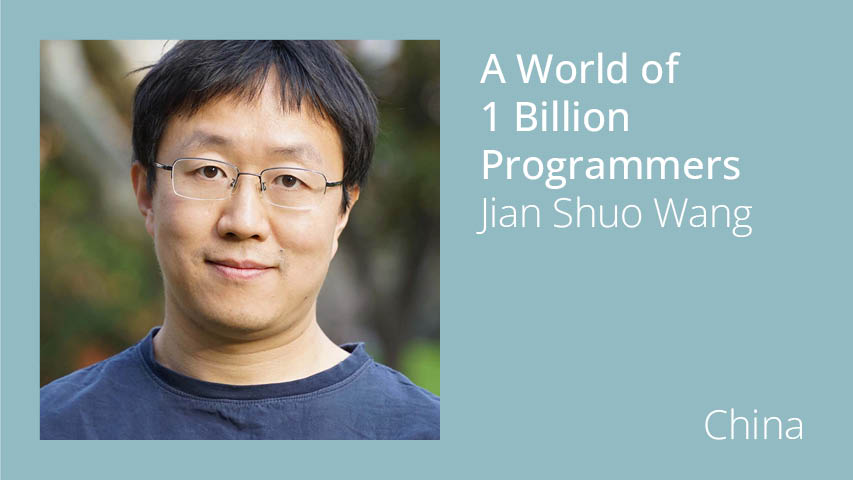
Jian Shuo Wang
China
CEO of Baixing AI, is a renowned tech commentator and columnist. Under his leadership, Baixing AI aims to help every individual and non-tech business transition seamlessly into the new AI era.
A World of 1 Billion Programmers
Industries most disrupted by technology show the most promise. The surge of AI will enable over a billion to function as programmers. This progression deepens human-computer interaction. Empowered by AI, everyone can do much more than before and computer system can adjust to more niche needs that dramatically changes how the world operate.
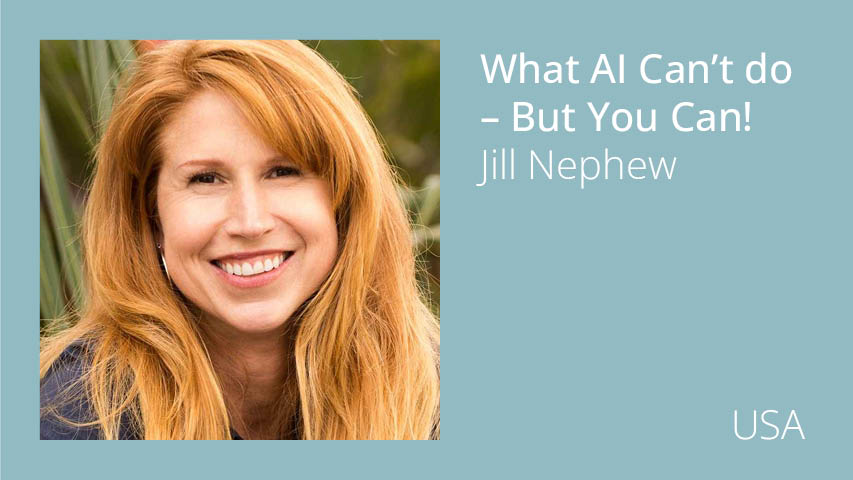
Jill Nephew
United States
Jill Nephew is the founder of Inqwire, technology designed to restore, protect, and enhance natural intelligence. Jill’s background includes developing platforms, algorithms, and meta-data-based software languages for complex problems such NP-hard optimization, natural language processing, planning and scheduling, biomolecule and disease kinetics, motion control, and sensemaking.
What AI Can’t do
— But You Can!
How do we protect student’s minds from interactions with AI while continuing to train essential critical thinking and reasoning skills? In this talk, Jill Nephew reveals the limitations of generative AI systems and how these limitations expose both a pressing need and a hopeful opportunity in restoring, protecting, and enhancing human natural intelligence.
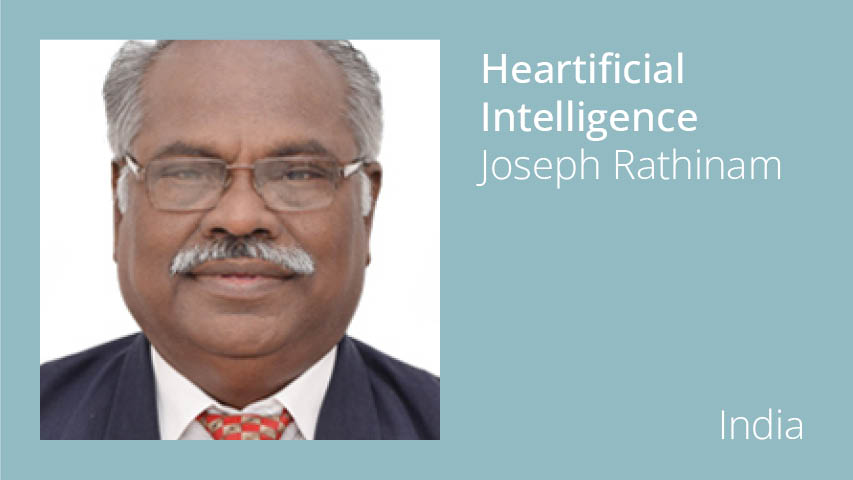
Joseph Rathinam
India
Joseph Rathinam is Director for the International Coordination and Networking for Neighborocracy. He has spent 27 years promoting the concept of Neighbourhood Parliaments (Neighbourocracy) and organising people at neighbourhood/village levels. Joseph’s movement has advised and helped over 4000 NGOs, 30,000 people’s/citizenry assemblies and 63,000 field staff members on how to improve citizenship participation.
.
Heartificial Intelligence
In a time of rapid and profound changes, what is the kind of intelligence that we really need?
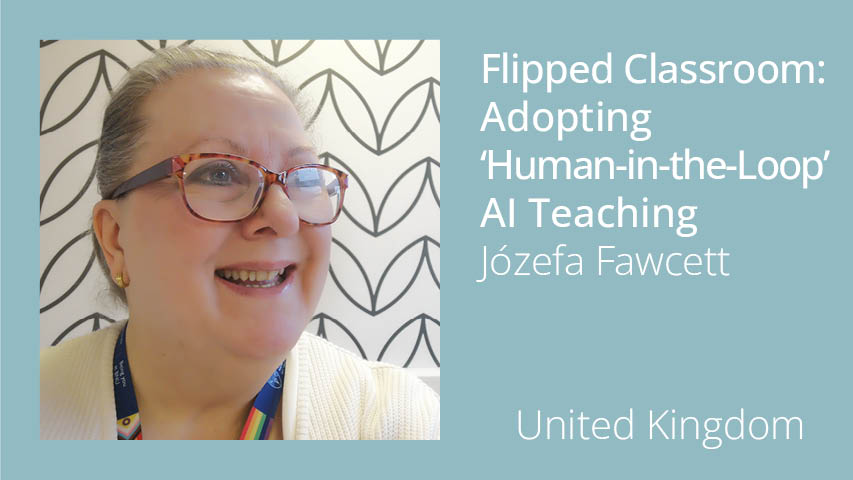
Józefa Fawcett
United Kingdom
Józefa Fawcett is an award-winning learning specialist, future capability architect, lecturer, professional voice-over, and Recognised Excellence Expert™. A woman on a mission supporting clients in developing their future workforce; promoting equity of access to high-quality learning (SDG #4) by leaning on her international experience in 36 countries, 5 continents, and 15 industries.
Read more about Józefa Fawcett here: https://www.linkedin.com/in/jozefafawcett/
Flipped Classroom: Adopting ‘Human-in-the-Loop’ AI Teaching
Will educators need to change their teaching style as more students use AI in their studies?
ChatGPT says: Yes. Adaptation and change are vital as the growing presence of AI in education changes the role of the tutor and how they interact with students.
Jozefa Fawcett says: I’m often speaking to academic colleagues about this and am usually met with responses about the problematic issues of using AI in education, particularly in the classroom. However, just focusing on the problems distracts us from the opportunities that AI can provide – including helping educators to teach in new ways that not only benefits the learner, but also meets their changing demands in a digitally-transformed world.

Juliana Storniolo
Brazil
Juliana has been an integral part of FourC Bilingual Academy since 2008. She holds a degree in Arts (LETRAS) with a specialization in Portuguese/English and Education from Universidade do Sagrado Coração (USC), along with a master’s degree in Education from Universidade Metodista de Piracicaba. During her tenure at FourC, Juliana successfully led the coordination of the kindergarten and elementary school department for a decade, subsequently ascending to the role of School Principal. Additionally, she serves as the Director of FourC Learning.
Sara Hughes
Brazil
Sara works with Corporate and Family Governance, in committees such as IBGC (Brazilian Institute of Corporate Governance) and FBN (The Family Business Network). Currently President of the Board of FBN- Brazil. Lwart Group Director Planning and Strategy for growth, diversification and CSSG. General Director Lwart Química. Lwart Group – Member of the Board of Directors and Strategy Committee
Entrepreneur and Founder – Focused on transformation through education and technology: FourC Bilingual Academy and Scaffold Education.
.
Preparing for the Future: How Can We Take Action in the Present?
The evolution of AI and its impact on our world remains uncertain. However, we can start a conversation about the changes needed in education to break free from the confines of traditional learning environments that hinder our adaptability to these changes.
With automation shaping tasks, exploring distinct human capacities is imperative. Amidst this paradigm, how can we amplify our cognitive potential through AI’s augmentation? In what ways can creativity, imagination, and collaboration converge to forge solutions that illuminate promising futures?
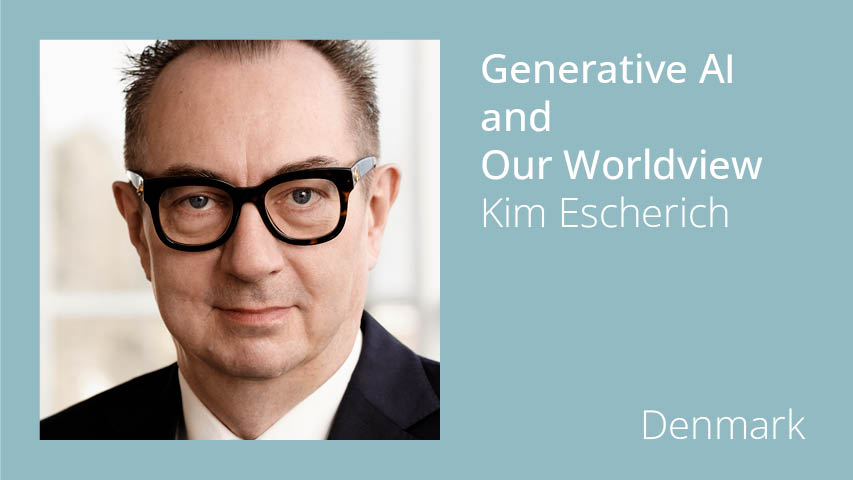
Kim Escherich
Denmark
Kim Escherich works in the intersection between ethics, sustainability, technology and happiness – across several domains which shares the common underlying idea about having an ethical and sustainable view on our future. Previously AI-ethical ombudsman in IBM and today advisor on technology ethics and professional speaker – and co-founder and head chef in the sustainable and regenerative restaurant Muldiverset.
Generative AI and Our Worldview
New kinds of AI is approaching and we all have the opportunity to become creators, supported by ChatGPT and the other big players. But is there a flipside? The presentation will give a short overview of that generative AI is, how it shapes our worldview and why the generative AI-trend represents a bunch of new and alarming ethical issues.
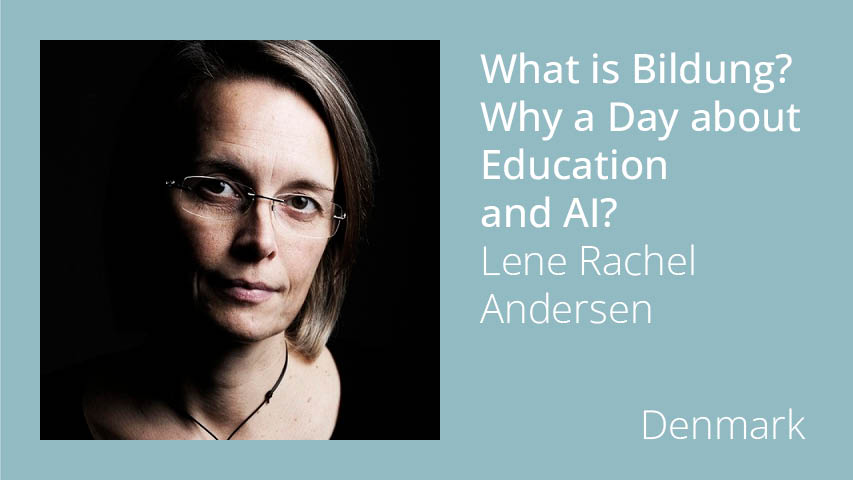
Lene Rachel Andersen
Denmark
Member of the Club of Rome, director of the Copenhagen based organization Nordic Bildung, initiator of the Global Bildung Network, and author of The Nordic Secret. Lene is an economist, futurist, philosopher, and author.
What is Bildung?
Why a Day about Education and AI?
Why are we even raising the question about education, bildung, and AI? If AI can help us educate more people faster, what has bildung got to do with it? Why do we, the organizers, think this conversation is important?
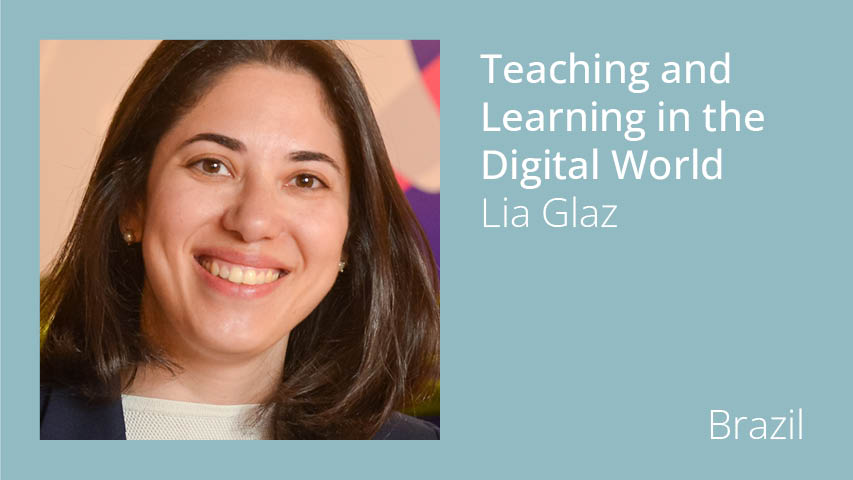
Lia Glaz
Brazil
Lia Glaz is President of Telefônica Vivo Foundation. She is graduated in Public Administration from FGV-EAESP and a master’s degree in Economic and Political Development from SIPA-Columbia University. At Fundação Telefônica Vivo, Lia has led the Education area. Before that, she worked for 15 years in social and multinational organizations in the areas of education, sports and healthy eating in Brazil, Canadá and Switzerland.
AI and Education: Perspectives and Challenges in Brazil
Telefônica Vivo Foundation promotes innovative initiatives and the use of technology to support the development of children and teenagers in the context of the 21st century. This includes programs offered by the Foundation, research development and policy strengthening processes public.
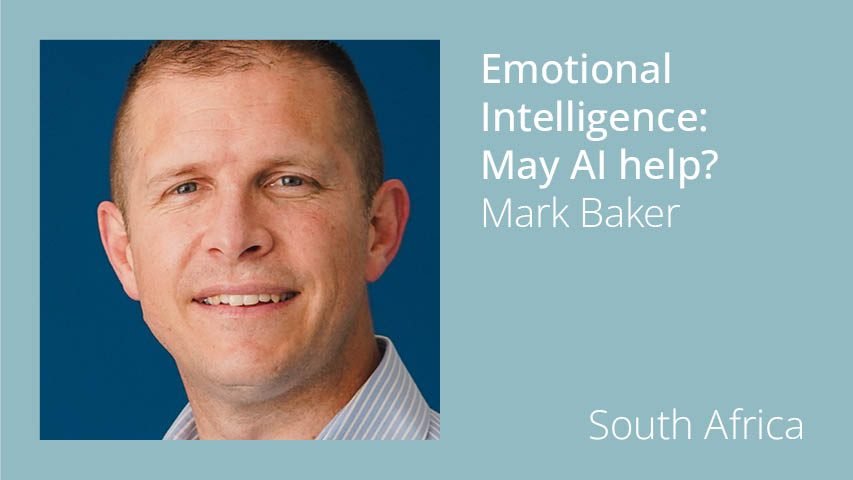
Mark Baker
South Africa
Mark is a Psychologist specialising in the development of Emotional Intelligence (EQ). He is the CEO of Mygrow, a technology company that develops, measures, and tracks EQ. As a husband and father of two boys, he knows the lifelong journey of building one’s own EQ and is passionate about helping others do the same.
Emotional Intelligence; May AI Help?
Improving emotional intelligence may require the implementation of specific techniques over sustained periods of time. These techniques leverage the brain’s neuroplasticity to rewire the emotional centers of the brain. Technology that facilitates the implementation of these techniques has started to leverage AI. This talk will explore some of the emerging dynamics involved
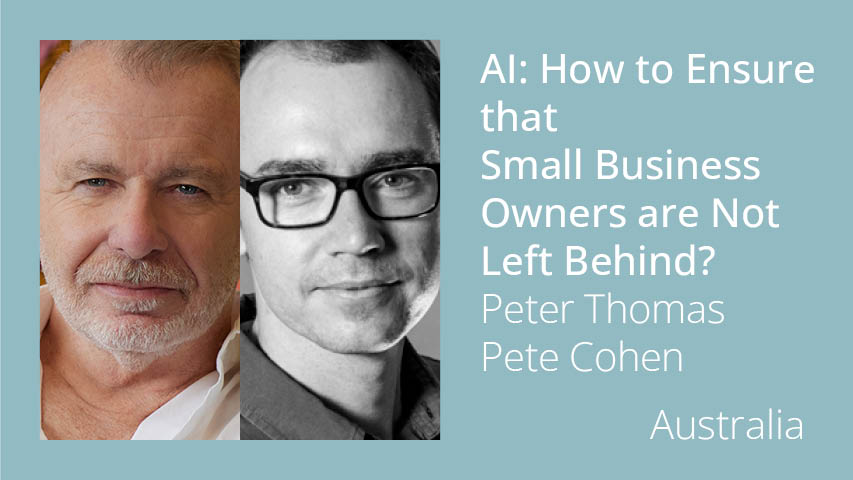
Peter Thomas
Australia
Dr Peter Thomas is director of FORWARD, The RMIT University Centre for Future Skills and Workforce Transformation. He also holds the position of Board President and Chair of the Conversation Design Institute (CDI) Foundation. Peter was formerly a charitable foundation co-founder CEO, a technology business CTO, a consultant and a professor of information management. He was educated at Leeds, Cambridge and Hull universities.
Pete Cohen
Australia
Pete Cohen is a systems innovator ad collaboration strategist and a development partner at FORWARD. He works with teams and large groups to tackle corporate challenges, raise social awareness and build capability for the future, drawing upon a background in psychology, communication, music, business and technology to lead and marshal people from different functions, disciplines, organisations and sectors to work together on projects with a common purpose.
AI: How to Ensure that Small Business Owners are Not Left Behind?
What kind of adult education is needed for small business owners to remain in business as new technologies disrupts old markets?
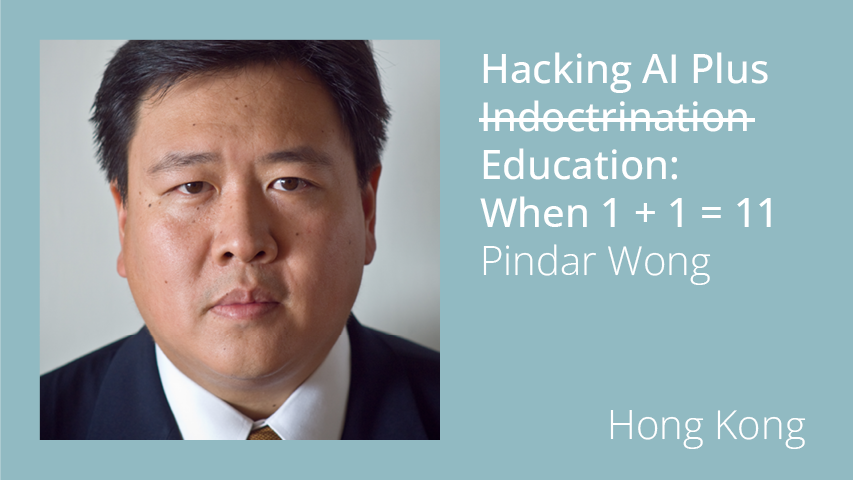
Pindar Wong
Hong Kong
Pindar is an Internet pioneer, who co-founded the first licensed Internet Service Provider in Hong Kong in 1993. He was the Chairman of VeriFi (Hong Kong Limited, a discrete Internet Financial Infrastructure consultancy. He also served as the first Vice-Chairman of ICANN, Chairman of the Asia Pacific Internet Association, alternate Chairman of Asia Pacific Network Information Center, Co-Public Lead of Creative Commons Hong Kong, Chairman of APRICOT, Commissioner on the Global Commission on Internet Governance and elected Trustee of the Internet Society. In Hong Kong, he has served on the Hong Kong Government’s Committee on Innovation, Technology and Re-industrialisation and on the Board of Directors of the Hong Kong Applied Science and Technology Research Institute Company Limited (ASTRI).
Hacking AI Plus Education:
When 1 + 1 = 11
Respecting the global symmetry of the event, we playfully explore the ‘Plus’ in ‘AI Plus Education’. From a right hemisphere perspective, in a world already awash in ‘fake news’ and ‘alternative facts’ will the brain race for Superintelligence negatively result in subtle systems of indoctrination rather than education? Could something more positive, and unexpected, result e.g. Khanmigo of Khan Academy? Finally, can we redefine the synthesis to rebalance our focus of attention e.g. by outsourcing our ‘left-brain’ thinking to an AI? I believe we can. I believe we must.
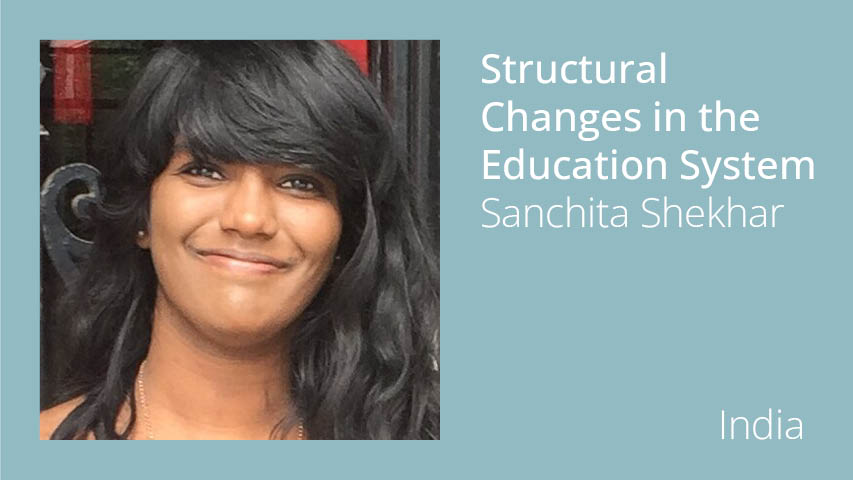
Sanchita Shekhar
India
Sanchita Shekhar’s extensive global experience in the education sector spans four continents. Presently, she is immersed in writing a comprehensive book delving into the past, present, and future of institutions worldwide. With a strong foundation in economics and an unwavering dedication to education, Sanchita aspires to foster inclusive spaces for individuals from diverse social backgrounds and geographical regions to collaborate and innovate. Her diverse expertise, encompassing education, blockchain, crypto economics, research, and social impact consulting, fuels her commitment to conceptualizing and executing global initiatives with a localized impact.
Reforming and Revolutionizing Educational Structures
In most cases, a society’s education system is influenced by local ideology and identity, as well as its interaction with global educational standards, unless it operates independently. This dual influence provides the system with resilience against abrupt shifts in societal paradigms, political changes, or prevailing narratives. What happens when this very resilience hinders the system’s ability to swiftly adapt to reflect evolving societal dynamics? This talk will explore the basis of why educational structures remain intact, the need for new ideas and the inclusion of new technology, and how to shift the educational system in a top-down and bottom-up way.

Te Rangimaria Warbrick
Aotearoa / New Zealand
Te Rangimaria Warbrick is a lecturer for the Postgraduate Diploma in Applied Mental Health and Addictions Counselling programme at Te Whare Wānanga o Awanuiārangi located in Whakatāne, Aotearoa/New Zealand. His research focus centres on the transformative application of Māori cultural practices in healing from addiction.
Ka mua, ka muri
– Walking backwards into the future
Te Rangimaria’s presentation titled “Ka mua, ka muri,” will explore Māori cultural narratives as tools for guiding through the complexities of an increasingly AI-driven future.
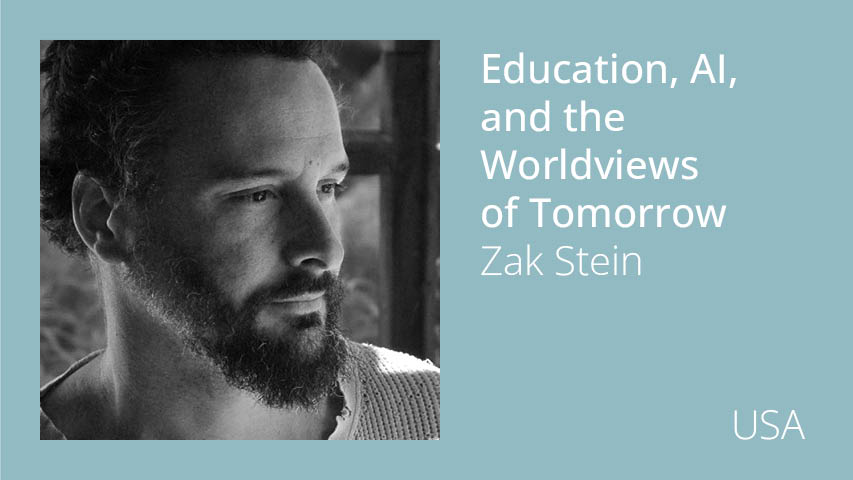
Zak Stein
United States
I studied philosophy and religion at Hampshire College, and then educational neuroscience, human development, and the philosophy of education at Harvard University. I am co-founder of The Consilience Project, which is dedicated to improving public sensemaking and building a movement to radically upgrade digital media landscapes. I have also published two books: Social Justice and Educational Measurement and Education in a Time Between Worlds.
Education, AI, and the Worldviews of Tomorrow
The worldviews of the technologist dominating innovations in AI involve the technocratic obsolescence of politics, radical techno-optimism, singularitarianism, and beliefs in the simulation-hypothesis. By the standards of most cultures throughout human history these worldviews would be considered “deviant,” “insane,” or “dangerous.” But these ideas are shaping the future of AI and therefore the future of our minds, cultures, and technologies of socialization.
